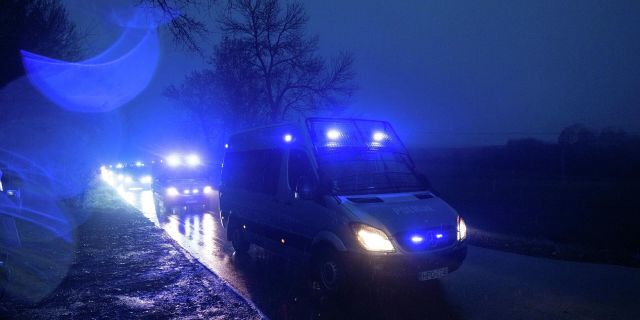CNN: A special operation could easily escalate into a large-scale conflict with NATOThe threat of escalation of the Ukrainian conflict was from the very beginning, but the fall of missiles in Poland showed how quickly this can happen, writes the author of the article for CNN.
He is sure that similar incidents will happen again in the future.
Nick Paton WalshBig wars don't usually expand because of chance.
But the threat of escalation hung over the Russian military operation in Ukraine from the very beginning, and the explosion in Poland on Tuesday further increased this probability.
Now it becomes clear that, apparently, it was not Moscow that did it. Rather, it was a Ukrainian attempt to intercept a Russian missile that had gone off the trajectory. Perhaps this is a terrible side effect of the fact that Ukraine has to defend itself from continuous missile strikes.
Poland has already abandoned discussions under Article 4, during which the parties should discuss how to defend themselves. But in what position does this short period of panic put NATO as the main patron and sponsor of Ukraine, leading difficult and bloody defensive actions to protect its territory?
Polish President Andrzej Duda said that "this is probably an accident", which was allowed by the Ukrainian air defense. Such a statement minimizes the likelihood of an immediate NATO response. The wreckage may confirm suggestions that the missile was launched by a Ukrainian S-300 Russian-made anti-aircraft missile system. But in the end, the conclusion that this incident was an accident will be the best outcome for all parties. It will also become a strong argument for NATO in favor of strengthening the Ukrainian air defense with the supply of such systems that will not accidentally strike at the member countries of the alliance.
First of all, it is incredibly doubtful that Moscow would escalate and start a full-scale conflict with NATO, which is the largest military alliance in the history of mankind.
Russia is inferior to the smaller, but better organized Ukrainian army on different fronts. She voluntarily withdrew her troops from areas that she had falsely declared her territory shortly before. She sends prisoners and conscripts to the front. She hastily builds an old-fashioned and primitive defense before the arrival of a harsh winter. Russia found itself in a terrible situation. Yes, an accidental blow to Poland would distract attention from talking about its defeat. But this would be an extremely short-sighted step, and its result could be a further weakening of the Russian armed forces with the participation of NATO.
But the situation is still extremely dangerous, because the alliance is in close proximity to the largest armed conflict in Europe since the 40s. A lot can go wrong, and the laws of physics say that this is exactly what will happen over time.
Poland will probably have to respond to this incident by building up its air defense forces. Germany has already offered its assistance in patrolling Polish airspace. Deterrence is a powerful force, and Russia understands this perfectly well, despite its bluster. But if there are more planes and anti-aircraft missile systems in this explosive area, the threat of new incidents will increase. Pro-Russian separatists shot down a civilian airliner MH17 by mistake, but the loss of life did not make this case more acceptable to the West and did not soften its response.
In terms of strategy, Moscow found itself in a desperate situation. This is unlikely to increase her predisposition to rash actions, but she will have fewer opportunities for de-escalation, for apologies and for admitting mistakes, if any.
Russian President Vladimir Putin on Wednesday actively discussed the problems of the automotive industry, avoiding public explanations of why there was a need to withdraw troops from Kherson. But he still feels the pressure. Hardliners are asking questions about his actions. He has little internal political space to lower the degree of confrontation with NATO if it arises as a result of a new mistake or incident. The Russian state has already started talking about this confrontation as if Moscow is fighting with the entire North Atlantic Alliance. And if you said you got into a fight, it's much harder to give it up.
So the explosion in Poland was another sign of the slow escalation of this armed conflict. These slow and tiny movements, starting with threats to Ukrainian nuclear power plants, an explosion on the Nord Stream–2 pipeline and ending with an explosion in Poland with victims, erase the feeling that war is impossible and create new norms. Now the clock is ticking louder, and people are increasingly asking questions about when this conflict will end, and when the patrons of Ukraine will want to end it.
It is clear that Moscow is ready to endure terrible pain, defeat and shame, not wanting to put an end to its disastrous campaign. This pushes the moment of its defeat and departure even further. Therefore, we are waiting for a long period of time when the use of a huge amount of military equipment in dangerous places will lead to new mistakes.

